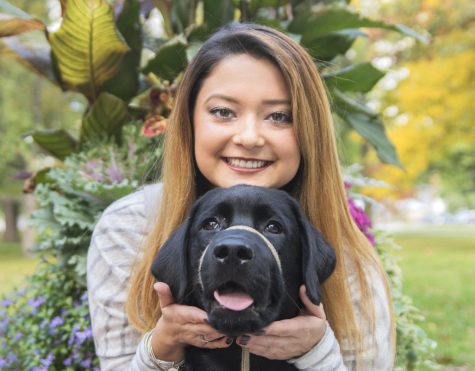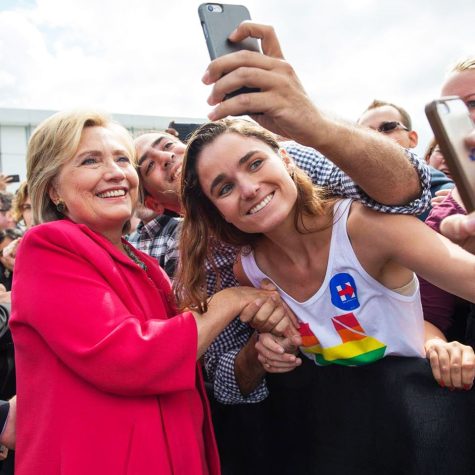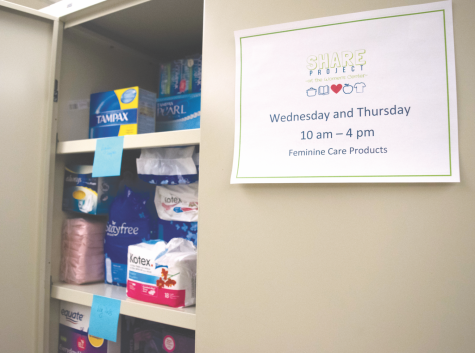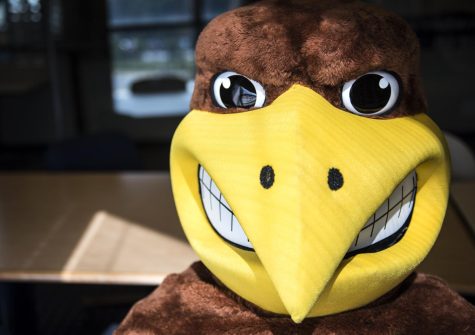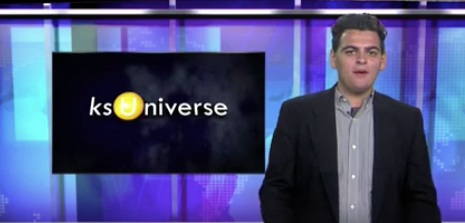Lewis speaks about May 4
April 27, 2010
Shrouded in darkness with their eyes closed, attendees to Dr. Jerry Lewis’ speech last night could hear only his voice solemnly listing the names of the students who were killed or wounded in the May 4, 1970 shooting. Thirteen seconds can last an eternity.
“The marshal program as it existed in 1970 was basically a range of faculty members of all disciplines, genders and academic rank who felt there should be faculty presence when students were protesting anywhere,” Lewis said. Lewis, now a professor emeritus of sociology, was just such a marshal in 1970 and witnessed the shooting. “We simply defined ourselves as a calming presence and what did we do? We talked, that’s what professors do the best. We tried to get them to see things in a different way.”
Lewis began as a sociology professor in 1966 and recounted his firsthand experiences leading up to May 4 and took attendees on a tour of the campus after his lecture, poignantly showing them where he was, where the soldiers were and how students reacted to the shooting. He said as a marshal he tried to be a voice of reason to students who feared the draft as America announced the invasion of Cambodia.
“Every family, sisters, brothers, girlfriends, so forth had to face the issue of the draft,” he said. He said students realized that the Vietnam War was not coming to an end and was in fact spreading.
On May 4 he was in the Prentice Hall parking lot, diving for cover as the sound of gunshots filled the air. He saw the smoke coming out of the guns and knew real bullets were being fired, not blanks.
“Two students were standing there and I was talking to them briefly telling them to leave and I looked up and saw a gurney coming down the hill, I grabbed the two female students and pulled them to my chest and said you don’t want to see this,” Lewis said.
He said it’s important for Kent State students and faculty to remember May 4 not because of remembering the four dead, but because they will get asked about May 4 and need to have an answer. No Kent State student, he said, has lost a job because of being associated with the shooting, but if they have a solid answer have had a higher probability of getting a job.
“We need to continue in a democracy to debate, argue, shout, raise hell about the use of force against people with a legitimate right to protest,” he said.
Sociology graduate student Christi Gross said the lecture and tour gave her more than insights than a documentary or book ever could.
“I had Dr. Lewis for the sociology of religion course before, fantastic professor, and I think it’s amazing to be able to interact with someone who was an eyewitness to the events,” Gross said.
Walking in the chilly evening air from Merrill Hall to the May 4 memorial site, Lewis stopped intermittently to tell people what had happened there and how he felt 40 years ago. He spoke with both clarity and an emotional rawness as if it had happened only a short time ago, not as if decades had passed.
A fellow sociologist, associate professor Dr. Tiffany Taylor said she’s always wanted his take on what happened that day from a professional standpoint.
“I think it’s interesting because as a sociologist he’s a trained observer,” Taylor said. “Just the presence of mind to take field notes three hours after it happened is pretty amazing. There’s going to be things that people who aren’t trying to observe aren’t going to remember.”
For Aaron Rinehart, Lewis’ speech was important because of misconceptions and questions about May 4 were straightened out from a person who was actually there.
“It provides the perspective of what somebody witnessed as the whole thing was going down as opposed to just wandering, there’s nothing up there that says this is where the national guard was,” Rinehart said. It’s much more valuable that us just wandering around here on our own.”
In 40 years, Lewis has published articles, written a book and done numerous lectures on that very painful, emotional day that most merely long to forget.
“I owe it to the students, I promised the parents of the slain students I would always help remember them, which is the main reason why I do the vigil walk,” Lewis said. “Plus I have the skills to get it right, but mainly because I promised the parents of the slain students.”
Email credit: Contact arts and sciences reporter Kathryn McGonagle at [email protected]












